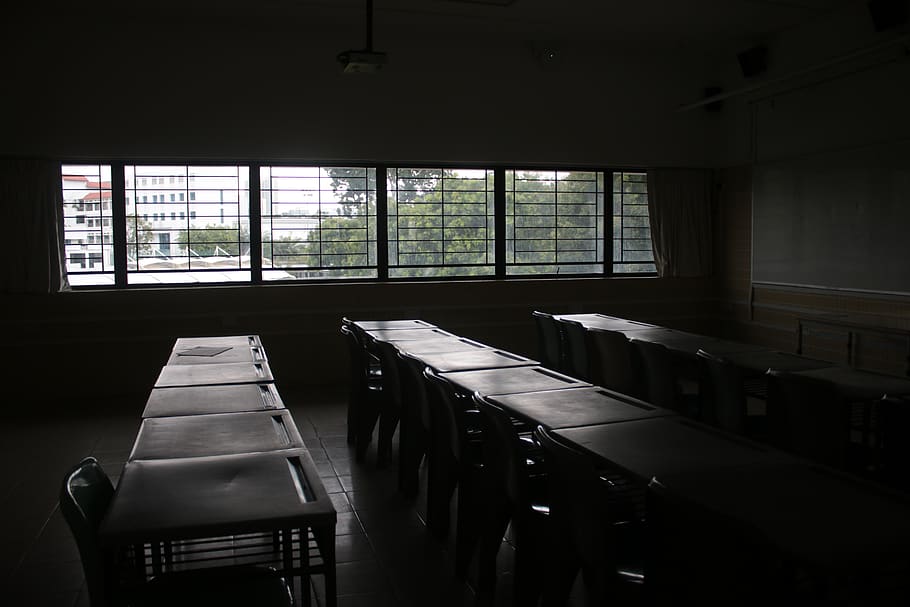Education
The impact of the pandemic on education seemed at first to be both obvious and short-term. After many confused and contradictory directives from the government, all schools in the United Kingdom were formally closed on 20 March 2020, and the university sector rapidly followed suit. Schools were, however, still obliged to retain a skeletal service for vulnerable children and the offspring of ‘key workers’ (a term that lacks/ed clear definition). All competitive national exams were to be cancelled and results would be determined on the basis of teacher’s predicted grades. At first this seemed like a temporary hiatus in students learning, but it soon became apparent that there would be no return to school in the summer term and university campus’ have been eerily deserted ever since. Unprepared for such an eventuality, schools and universities scrabbled around in a desperate attempt to reinvent themselves as online education providers, with mixed results across all sectors. Even the planned reopening of schools this September is a subject of much anxiety for both parents and teaching staff alike. Educational establishments have struggled to remodel their physical environments to take account of social distancing, new and untried models of provision such as ‘hybrid’ or ‘blended’ learning are planned, and the threat that schools will act as vectors of a wider contagion remains very real. For universities, an additional concern is the severe damage done to their financial models, with the likely absence of high-fee paying international students and low take up of conferencing facilities potentially pushing some institutions beyond breaking point.
Last Thursdays ‘pandemic perspectives’ debate considered the implications of these changes, guided by the lead article in the August 8 issue of The Economist https://www.economist.com/leaders/2020/08/08/covid-19-will-be-painful-for-universities-but-also-bring-change, a second, more optimistic, article on the university sector from the 19 June issue of The New Statesman https://www.newstatesman.com/spotlight/coronavirus/2020/06/how-universities-can-embrace-post-covid-future-1 and two articles from July editions of The Guardian on the the impact on pupil’s learning in the secondary sector and the gendered impact of school closures respectively, https://www.theguardian.com/education/2020/jul/14/half-of-exam-year-uk-pupils-given-no-school-work-since-march-finds-study, & https://www.theguardian.com/education/2020/jul/30/women-put-careers-on-hold-to-home-school-during-uk-covid-19-lockdown. An interview conducted by History UK with Chris Williams of the Open University on pedagogy in distance learning was added during the course of the debate, https://www.history-uk.ac.uk/2020/08/18/not-just-hello-we-love-you-interview-with-chris-a-williams/.
The discussion was led by dystopia expert, ex- teacher and passionate educationalist, Liam Knight, and focussed largely on three areas out of many; the impact on universities, the changes brought about by online teaching, and the differentiated impact of the crisis on different socio-economic groups.
Early on, the group had a moment of collective catharsis over the fiasco of the algorithmic downgrading of A-levels and GSCEs, its prejudicial consequences on the grades of those from schools in disadvantaged areas, and its subsequent chaotic reversal. Niall Gallen pointed out that the farce had merely exposed the already existing inequalities in education provision, and the way in which the pre-covid system had denied access to the best universities for pupils from poorer backgrounds. He also noted the structural racism in predicted grades that persistently gave lower estimates to BAME students.
David Christie suggested that as the whole mess had brought structural injustices in education to the foreground, a possibility to finally tackle the issues had arrived. As usual such effusions of optimism were largely ignored, although Richard Kendall noted that the Daily Mash had commented that the fiasco had achieved the impossible by uniting the upper and working classes in a sense of common grievance.
The debate moved on to the differential impact on parts of the university sector. With the cap on student numbers now lifted, it was agreed that a significant proportion of the Russell Group’s financial woes would likely be assuaged, but only at the cost of sucking up students from lower-ranked universities. Niall stated that it was rumoured that Gloucestershire’s entire humanities department was facing the axe, and Hanan Fara highlighted the plight of Newman University in Birmingham where with only 2,500 students the prospect of a 25% loss of new intake would have catastrophic consequences. Hanan also expressed concern over the delivery of the new ‘blended learning’, proposed for the Autumn term where 90% of teaching would be online, with students on campus for only three hours per week, where they would receive tuition in small groups of no more than five. The interview with Chris Williams from the Open University was referred to, where he outlined the meticulous care undertaken in preparing distance learning courses, citing around three years as the average lead team for a new module, a time-scale necessary to prepare materials that were accessible to all types of learners and took into account their different levels of knowledge and ability. The bricks and mortar university sector had had no more than three months to prepare. Quality would inevitably suffer. Niall expressed concern that it would result in education becoming privatised, as all ready existing commercial distance learning companies would step in to the breach. It was noted that the existence of a high-quality state sector alternative, the Open University, had received little or no attention in the crisis, despite its obvious utility.
This led to a lengthy discussion on the costs of a largely virtual learning environment. Hanan pointed out that the success of distance learning was drastically affected by economic circumstances. It could not be assumed that students from poorer backgrounds would have access to their own laptop, or a conducive space in which to study. She also pointed out that the collective experience of actually attending university was the means by which social and cultural capital was moved around, through casual contact and discourse as well as through lectures and seminars, and that without such mixing the possibilities of social mobility where drastically truncated.
There was much more, as ever – join the conversation by getting in touch or posting a comment.

